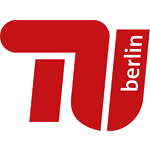Difference between revisions of "Team:Berlin"
Jpalbrecht (Talk | contribs) |
Jpalbrecht (Talk | contribs) |
||
| Line 154: | Line 154: | ||
<button type="button" class="btn btn-success btn-lg hidden-lg"> More Information</button> | <button type="button" class="btn btn-success btn-lg hidden-lg"> More Information</button> | ||
<a href="https://2015.igem.org/Team:Berlin/Project" class="more-informations-white hidden-xs hidden-sm hidden-md"><p><font color="#FFFFFF">More information</font></p></a> | <a href="https://2015.igem.org/Team:Berlin/Project" class="more-informations-white hidden-xs hidden-sm hidden-md"><p><font color="#FFFFFF">More information</font></p></a> | ||
| − | + | </div> | |
<div id="ecoli-button" class="hidden-xs hidden-sm hidden-md"> <a class="btn-lg" ><img src="https://static.igem.org/mediawiki/2015/2/2b/Team_Berlin_igem_arrow_right_white.png"> </a></div> | <div id="ecoli-button" class="hidden-xs hidden-sm hidden-md"> <a class="btn-lg" ><img src="https://static.igem.org/mediawiki/2015/2/2b/Team_Berlin_igem_arrow_right_white.png"> </a></div> | ||
</div> | </div> | ||
| − | + | </div> | |
</div> | </div> | ||
</div> | </div> | ||
Revision as of 19:21, 14 September 2015
Enzymatic Flagellulose
This year’s iGEM project of the Berlin team is all about plastic -
to be specific: microplastic and the clearance of our water with the aid of Synthetic Biology.
The idea is to build a modular filter system for wastewater treatment plants which is able to degrade plastic.
Bacterial flagella, moleculare hair-like structures, are equipped with a combination of enzymes
that are able to breakdown plastic molecules.
Project
Projekt erklaerung.
Team
Our team is made up of 10 undergraduates and postgraduates from different disciplines as well as our supervisors. The iGEM Team Berlin 2015 is an assembly of highly motivated students from different universities. Due to the multidisciplinarity our team is able to find different strategies to solve complex problems in synthetic biology. Under the direction of Prof. Dr. Nediljko Budisa group leader of the Biocatalysis Group at the TU-Berlin. Our lab is located at the Müller-Breslau-Straße 10, 10623 Berlin (Germany).
Safety
Our country uses a four-part „Safety Level“ rating system for laboratories. Level 4 is used for the most dangerous organisms. This is equivalent to the WHO system. The Safety Level of our lab is Level 1 (low risk).
Thanks to


















 Enzymatic Flagellulose
Enzymatic Flagellulose